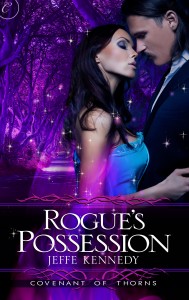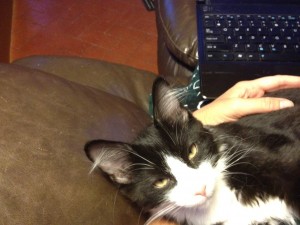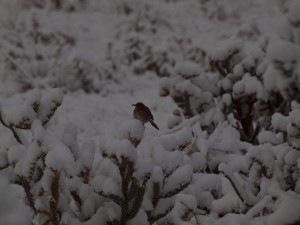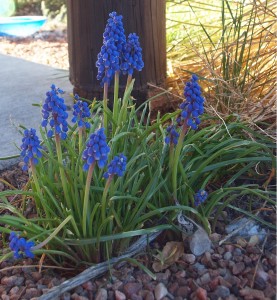 I’m over at the Contemporary Romance Cafe today, musing about genre conventions and wondering what makes a book like my next week’s release, Rogue’s Possession, a fantasy romance instead of contemporary romance. Is it only setting?
I’m over at the Contemporary Romance Cafe today, musing about genre conventions and wondering what makes a book like my next week’s release, Rogue’s Possession, a fantasy romance instead of contemporary romance. Is it only setting?
RITA ® Award-Winning Author of Fantasy Romance
 I’m over at the Contemporary Romance Cafe today, musing about genre conventions and wondering what makes a book like my next week’s release, Rogue’s Possession, a fantasy romance instead of contemporary romance. Is it only setting?
I’m over at the Contemporary Romance Cafe today, musing about genre conventions and wondering what makes a book like my next week’s release, Rogue’s Possession, a fantasy romance instead of contemporary romance. Is it only setting?
 My office assistant, Isabel. At least she’s not on the keyboard, right?
My office assistant, Isabel. At least she’s not on the keyboard, right?
The other day, I saw this tweet:
D’ya think it’s poss to write a YA zombie book without ever having read ANY zombie books at all, like ever? Recommendations please folks?
This isn’t anyone I follow or who follows me – I saw it because someone I follow retweeted it. So, Unknown Person who asked this question by flinging it upon the waters of Twitter in good faith, if you see this, please don’t think I’m dissing you here. I had a long answer to your question. Longer than Twitter permits.
Plus I admire this person for asking the question in the first place. So very many people don’t. And I think it hurts them as writers.
See, there’s this idea that there’s an artistic purity in working from a vacuum. I’m not quite sure where it comes from. But people love to tell stories about the guy who never studied painting, ever but produces this amazing, unusual work. Or the young girl who spontaneously starts creating symphonies. We’re fascinated by the idea of this kind of genius, that seems to spring out of nowhere.
It also maybe is alluring, because we get the idea that we can skip a few steps and be successful anyway.
Really, I think this rarely happens. In fact, I suspect it never happens and stories meant to convey that idea are heavily massaged. There’s a reason interviewers ask bands about their influences, why people are forever asking writers who they read. Creativity comes out of richness, not a vacuum. Ideas lead to more ideas. Also, learning your craft means studying others who’ve gone before.
After all, no one really wants to hire an architect who says “Oh, I didn’t go to school because I didn’t want my creativity to be influenced by the establishment.” No CPA should touch your taxes who says she hasn’t read all that IRS stuff.
It’s great to want to be a rulebreaker, but you have to know what the rules are first. For a writer, that means reading. A lot of reading.
A few years back, I had a friend who was writing a vampire book. Only hers was a going to be a special vampire book – not like all the others. In fact, she’d never read a book with vampires in them. She had a fair amount of contempt for the genre. When I suggested a few books or authors who’ve greatly influenced that genre, she dismissed the idea. First of all, she didn’t want to waste her time reading books like that. Secondly, she wanted her book to be unique, untainted by the tropes. She planned to mix it up and do something Fresh, Exciting and New.
Who doesn’t want to do that?
Thing was, because she hadn’t read, she didn’t know which rules she was breaking. So, she would ask me, hoping for the benefit of all the energy I’d invested in reading those stories. I found that, not only was it difficult to answer a question about vampire nature – after all, according to which author, which tradition? Laurell K Hamilton’s vampires are not Charlaine Harris’s vampires are not Anne Rice’s vampires are not Bram Stoker’s vampires are not Stephenie Meyer’s vampires – but I resented that she wanted to write a genre she didn’t care enough about to read.
That’s what it really comes down to. If you’re writing something you don’t love to read, why the hell are you writing it?
This is a kind of literary carpetbagging. The sort of person who swoops in on the lucrative opportunity, with no real investment in the thing itself.
Not that you’re thinking that way, unknown Twitter person. Because you, at least, cared enough to ask. The short answer is sure, it’s possible to do it. There’s no guarantee for how your book would turn out if you do or don’t read. But why wouldn’t you? Take two weeks and read everything you can get your hands on. If you’re feeling the YA zombie love, then it should be a fun assignment for yourself. Spend a little time enriching yourself, creating a nice thick stew of ideas and images and emotions to draw from.
Don’t worry that you’ll be derivative or duplicating – if your creative heart is in the right place, your own story will come out of it. But do spend a little time studying the genre.
It will be an investment you’ll never regret.
 I’m over at the Fantasy, Futuristic and Paranormal blog today, talking about being a cross-genre write – and why my agent said my books aren’t anything.
I’m over at the Fantasy, Futuristic and Paranormal blog today, talking about being a cross-genre write – and why my agent said my books aren’t anything.
 Who would not be seduced by this face, I ask you?
Who would not be seduced by this face, I ask you?
It seems the debate on “real literature” and “serious reading” will continue to roll on. It’s occurring on so many levels, with so many lines being arbitrarily drawn. There’s the Literary camp, of course, who accepts only a few authors into their lofty ranks. I really like this summation by Neil Gaiman in answer to a question on his Tumblr about why his teacher says Gaiman’s book isn’t “real literature”:
“Never try to teach a pig to sing; it wastes your time and it annoys the pig,” as Robert Heinlein once said.
I mean, you could ask your teacher to explain why Watchmen’s on the syllabus, if it’s not real literature. Or why TIME picked it as one of the 100 best novels of the Twentieth Century, but that will probably just make your teacher even more defensive. And mostly you’ll just be trying to explain to someone who is color blind why red is a really nice colour.
(About twenty years ago I was on a flight to the US, and sat next to an English professor at some middle-range US university, and we talked about books, because I love talking about books. And his specialty was early twentieth century literature, and I thought our conversation was going to be so much fun, until I realized that he really didn’t know any authors who he didn’t teach. He could talk Hemingway or Fizgerald, but as soon as I started mentioning authors equally as interesting out of the canon, and I was sticking to American authors because he was, you know, American, he started looking hunted; and I felt a little sorry for his students, but only a little, because even a bad teacher can’t stop you reading in your own time.)
I saved this link and this story because I think it speaks volumes. For a long time English and Literature classes famously only taught a few writers – often referred to as “dead, white males.” This has opened up, but judiciously, to minorities and females. But, as there’s an idea that lines must be drawn, most books smacking of genre are excluded from consideration.
Then, the other day, I stumbled across this really excellent essay by Ursula Le Guin. I think what we’re seeing now is these genre authors who’ve reached the age of authenticity, talking intelligently about their bodies of work, which just happen to be genre. She proposes a solution to the endless debate:
To get out of this boring bind, I propose an hypothesis:
Literature is the extant body of written art. All novels belong to it.
The value judgment concealed in distinguishing one novel as literature and another as genre vanishes with the distinction.
Every readable novel can give true pleasure. Every novel read by choice is read because it gives true pleasure.
Literature consists of many genres, including mystery, science fiction, fantasy, naturalism, realism, magical realism, graphic, erotic, experimental, psychological, social, political, historical, bildungsroman, romance, western, army life, young adult, thriller, etc., etc…. and the proliferating cross-species and subgenres such as erotic Regency, noir police procedural, or historical thriller with zombies.
Some of these categories are descriptive, some are maintained largely as marketing devices. Some are old, some new, some ephemeral.
Genres exist, forms and types and kinds of fiction exist and need to be understood: but no genre is inherently, categorically superior or inferior.
This makes the Puritan snobbery of “higher” and “lower” pleasures irrelevant, and very hard to defend.
All of this continues to be on my mind because, even within genre, there’s criticism of who is legitimate and who isn’t. Mainly, there seems to be a bastion in sci fi and fantasy that feels pressed to defend it against feminization. No “soft sci fi” is their battle cry.
So, I’d like to propose an amendment to the hypothesis, as such:
Genres exist, forms and types and kinds of fiction exist and need to be understood: but no genre or emotional style is inherently, categorically superior or inferior.
What do you all think?
Hi folks. Robot Jeffe here. Yes, that’s totally what I look like.
Hopefully I look tanned and rested – but I’m still winging back from the Caribbean today. But, thanks to interwebs magic, you can visit me over at Word Whores for my Sunday sermon on why I write genre.
Short answer? Because I love it.
Can I get an amen on that?
Amen!
 The conversation prompted by yesterday’s post on writing in multiple genres, both on the blog and elsewhere (sorry, some people ping me in other venues, rather than commenting – it’s all good to me), has gotten me thinking about genre.
The conversation prompted by yesterday’s post on writing in multiple genres, both on the blog and elsewhere (sorry, some people ping me in other venues, rather than commenting – it’s all good to me), has gotten me thinking about genre.
First of all, someone pointed out to me that Kris Rusch posted on a very similar theme yesterday, which is well worth reading. Essentially she agrees that it’s good for authors to write in multiple genres because it broadens audience. She also pointed to a workshop conducted by her husband, Dean Wesley Smith, on writing to genre and genre conventions. She kind of complains that only a few writers sign up for this every year, implying that this shows poor business sense.
On top of that, I’m cross-posting this to the Here Be Magic blog, because someone else wasn’t able to, and the theme this month is “Fantasy Romance Favorites.” For those of you not in the swim, fantasy romance is its own sub-genre now.
So I blithely agree to cross-post, then starting racking my brain for fantasy romance books. You’d think this would be easy for me, since Rogue’s Pawn, the novel I have coming out July 16 from Carina, is fantasy romance.
Heh. And yet – not so much.
See, if I’d taken that workshop from Dean Wesley Smith, I would have written the book to the genre I picked. I can see how this would make good business sense. I totally did not do this. I started out with a character. I knew she was a scientist and that she became a sorceress. There were seed images and feelings that I dreamed. The stuff with the bathing chamber deep underground and the Black Dog – all stuff I dreamed.
(I know very few of you have read it yet – soon, soon!)
I did *not* dream the genre. Nor did I decide, “oh! I’ll make this a fantasy romance, which means I need to follow this genre conventions.” No, I wrote the story and there ended up being this waltz of seduction with a manipulative Fae in the story and there were my romantic elements.
Did this method cause me problems? Of course it did! I can tell people it’s kind of like Jacqueline Carey and a bit like Anne Bishop, kind of like Diana Gabaldon and with hints of J.R. Ward. Which, if you have read those writers, probably sounds like a muddle.
Would it have made better business sense to take Smith’s workshop and get good at writing within genre conventions? Probably so.
And yet. I don’t wanna.
This might mean I will never be a hugely best-selling author. Today, I am at peace with that.
Categorizing books by genre help readers find what they want, but that way of defining is only one tool. As readers, we all know it doesn’t always work. How many times have you have to ask the person in the Big Box Bookstore where they shelved a particular author? When I was on my Laurell K Hamilton kick, I had to ask. They’d put her under Mystery. Okay. I’ve read numerous pieces speculating that Fifty Shades of Grey has hit this new audience so big because none of them know it’s a romance novel, much less “erotic romance with BDSM elements.” Young Adult (YA) didn’t even become a genre until recently. What were reading, those of us who were young readers in the 70s and 80s? Hard to say.
This is my problem as a reader, thinking about Fantasy Romance Favorites. Does Jacqueline Carey count? I bet not, because the romantic arc, while important, isn’t the main backbone of the stories. The ISBN has it under “Kings and rulers, succession,” which really amuses me.
What this comes down to for me is that the whole concept of genre is a construct. It’s not real. It’s about branding and marketing and expectations and easy sound bites, but it has nothing to do with the actual story.
And isn’t the story what it’s really all about?
 Spring seems to be officially here! Isn’t it lovely to see the flowers again?
Spring seems to be officially here! Isn’t it lovely to see the flowers again?
Over the weekend, I was catching David up on some of the discussions during the week about whether reading “literary” fiction is better for you. I told him about my blog posts on Careless Conclusions in Genre Reading and whether suffering is a human virtue.
Okay, I might have been ranting. This is the public service that David performs for you all. He listens to my ranting so YOU don’t have to! He’s a loving and selfless human being this way.
At any rate, I was telling him about the essay that set me off on the Careless Conclusions post, how she proposed a “slow books movement,” comparable to the Slow Food ideas. And he, being the one who’s finishing his degree in Traditional Chinese Medicine (TCM = acupuncture, herbs, nutrition, body work – for those of you not in the know), said that slow food causes stagnation and obstruction.
He’s like that these days. You mention one thing and he gives you a list of causes, symptoms and remedies. It’s like living with the TCM Magic 8 Ball.
So, I start to explain that’s not what the Slow Food people are about – that it’s in opposition to fast food, that you make food from scratch, from raw sources and take time to prepare it carefully. But then I realized: he has a really good point. Because, really, the Slow Books analogy is not a good parallel at all. It’s not about books that take longer to write. (Though I know the literary aficionados think this is true, making the classic mistake of believing that a fast read means a fast write. Heavens to Betsy, we only wish!)
No, by Slow Books, she really means books that take a long time to READ.
We’ve all been there, right? That weighty tome we’re required to read, for class or because we decide we should. And you sit there and wade through it, trying to keep your focus on it, failing. You set it down at the least excuse and find ten thousand reasons not to pick it up again. For me this is Great Expectations. I bet I’ve tried to read it five times. I can’t. I just can’t. Don’t make me slide into Gollum-speak to explain my feelings.
These books take a long time to read and digest – so David’s analogy is actually spot on. They are like food that sits in our stomachs and takes forever to break down for nutrition. If you’re starving, maybe this is a good thing. “Stick to your ribs” was a positive attribute in a world where you might not see another meal for a couple of days. But usually, stagnation and obstruction is a negative. That enormous Thanksgiving meal? The Prime Rib special at the local steakhouse? That triple-bacon-cheeseburger that looked liked such a good idea on the billboard?
Yeah, we’ve pretty much all experienced the stagnation and obstruction thing.
It’s interesting to contemplate. Maybe non-literary fiction isn’t the junk food of the mind, but rather the whole grains and fresh fruit. A light, fast read that leaves us optimistic and full of fun, new ideas might be cleansing. Just enough to nourish without overwhelming the system. After all, it’s not like we need more input for our brains. Our modern American society is as information-rich as it is food-rich.
Discovering what’s truly good for us, so that we operate as healthy and happy people – that’s the key.
So, I read this essay yesterday in The Atlantic Monthly, that ostensibly exhorted people to make a conscientious effort to read more.
Now, I’m all about that. I love to read. I love to talk about books. I should be all about this essay.
But no.
Because the author just HAD to go there. She had to draw a line between good and bad reading. Which I’ve just really had quite enough of. Thus, she pissed off the genre-reader in me. Also, she failed to properly cite her data sources and, worse, drew spurious conclusions. Now she’s annoyed the neuroscientist in me.
You can go read the essay if you wish. It’s fine – the author creates an analogy of the healthfulness of the Slow-Food Movement to her proposed Slow-Books Movement. Not really the same thing, but the metaphor works in general.
This is the section that gets me:
Also excluded: non-literary books.
Why the emphasis on literature? By playing with language, plot structure, and images, it challenges us cognitively even as it entertains. It invites us to see the world in a different way, demands that we interpret unusual descriptions, and pushes our memories to recall characters and plot details. In fact, as Annie Murphy Paul noted in a March 17 New York Times op-ed, neuroscientists have found plenty of proof that reading fiction stimulates all sorts of cognitive areas—not just language regions but also those responsible for coordinating movement and interpreting smells. Because literary books are so mentally invigorating, and require such engagement, they make us smarter than other kinds of reading material, as a 2009 University of Santa Barbara indicated. Researchers found that subjects who read Kafka’s “The Country Doctor”—which includes feverish hallucinations from the narrator and surreal elements—performed better on a subsequent learning task than a control group that read a straightforward summary of the story. (They probably enjoyed themselves a lot more while reading, too.)
Literature doesn’t just make us smarter, however; it makes us us, shaping our consciences and our identities. Strong narratives—from Moby-Dick to William Styron’s suicide memoir, Darkness Visible—help us develop empathy. Research by Canadian psychologists Keith Oatley and Raymond Mar suggests that reading fiction even hones our social skills, as Paul notes. “Dr. Oatley and Dr. Mar, in collaboration with several other scientists, reported … that individuals who frequently read fiction seem to be better able to understand other people, empathize with them, and see the world from their perspective,” she writes. “This relationship persisted even after the researchers accounted for the possibility that more empathetic individuals might prefer reading novels.”
Let’s break this down, shall we?
First of all, she cites someone else’s op ed and interpretation as a data source:
In fact, as Annie Murphy Paul noted in a March 17 New York Times op-ed, neuroscientists have found plenty of proof that reading fiction stimulates all sorts of cognitive areas—not just language regions but also those responsible for coordinating movement and interpreting smells.
At least she linked to it, right? So I went and read that. I’m familiar with some of these studies, which that essay does review in detail, with citations. As I suspected, these are very interesting studies that show when someone reads about an action, the brain “lights up” in the same way as when the person actually performs the action. Fascinating stuff. The thing is, to keep things simple, always a key point for scientific experimentation, the researchers used children’s stories. Thus references to lines such as “John grasped the object” and “Pablo kicked the ball.”
Still, pretty cool, huh?
But our essayist goes directly to this conclusion:
Because literary books are so mentally invigorating, and require such engagement, they make us smarter than other kinds of reading material…
Okay. I’m scratching my head, wondering how she went from “Pablo kicked the ball” level reading to mentally invigorating literary books. But then I see – she has another study to cite. Her logic is a little reversed, but really it’s just the way she composed the sentence, finishing the thought with:
…as a 2009 University of Santa Barbara indicated. Researchers found that subjects who read Kafka’s “The Country Doctor”—which includes feverish hallucinations from the narrator and surreal elements—performed better on a subsequent learning task than a control group that read a straightforward summary of the story.
Anyone else spot the flaw in the conclusion here? Yeah. the study found that reading the story itself has a different effect than reading the freaking summary. It did not compare The Country Doctor to Interview with the Vampire. (I’ve read both, by the way – full disclosure.) I couldn’t find out more about this particular study, which sounded interesting, since she didn’t include a citation. Alas.
So then she states:
Literature doesn’t just make us smarter, however; it makes us us, shaping our consciences and our identities.
Her opinion, not supported by any data that I can see. Though she appears to connect the assertion to the following summary:
Strong narratives—from Moby-Dick to William Styron’s suicide memoir, Darkness Visible—help us develop empathy. Research by Canadian psychologists Keith Oatley and Raymond Mar suggests that reading fiction even hones our social skills, as Paul notes. “Dr. Oatley and Dr. Mar, in collaboration with several other scientists, reported … that individuals who frequently read fiction seem to be better able to understand other people, empathize with them, and see the world from their perspective,” she writes. “This relationship persisted even after the researchers accounted for the possibility that more empathetic individuals might prefer reading novels.”
Our essayist is back to citing another essayist’s summary of research. Okay. So I went back to Paul’s essay and confirmed that, yes, her summary still just says “fiction” – not a mention of Moby-Dick or any William Styron in sight. (And why not mention Sophie’s Choice? Far better known. Too commercial?) Then I looked up Oatley and Mar’s work. Again, no citation provided – don’t English majors have to learn this stuff, too?
I wasn’t able to access the actual papers (*sigh*), but I could review the publication list for their research. Scientific paper titles tell you a lot, because they’re intended to encapsulate exactly what was tested. Such as Exposure to narrative fiction versus expository nonfiction: Diverging social and cognitive outcomes. There’s also Bookworms versus nerds: Exposure to fiction versus non-fiction, divergent associations with social ability, and the simulation of fictional social worlds.
Yeah – you’re all clever people. You see it, too. They’re comparing fiction to nonfiction. Some of the other titles are less definitive, referring only to narrative fiction. Nowhere did I see a comparison of literary fiction to genre fiction. I’d be interested to see the studies, frankly. However, I suspect most scientists wouldn’t touch an experimental design like that, because of the difficult of defining what is literary and what is genre. Fiction versus nonfiction is a reasonably clean demarcation.
Our essayist says: Best of all, perhaps, serious reading will make you feel good about yourself. I would point out that what she’s really saying is that what she considers to be serious reading (not really a definable term, scientifically) makes her feel good about herself. More power to her! Choose your reading and enjoy it!
But please, people, let’s exercise a bit more caution with conclusions. Literary fiction might be “better” for us than genre. I’m willing to be persuaded.
Your strong opinion is not enough, however, no matter how you might mix and match the data to suit your purposes.
 I’m cranking to get out a big work deliverable today, so I’ll just share a little link and be on my way. I just love this letter from Genre to Literature. Says it all. (Plus he lives nearby in Albuquerque, right on the other side of this magnificent pink cloud bank.
I’m cranking to get out a big work deliverable today, so I’ll just share a little link and be on my way. I just love this letter from Genre to Literature. Says it all. (Plus he lives nearby in Albuquerque, right on the other side of this magnificent pink cloud bank.
 I’ve discovered I’m really bad at labels.
I’ve discovered I’m really bad at labels.
You know, like choosing labels for the blog posts. Like on yesterday’s post, I wanted some kind of label that would reference the way I fret over the animals, the small and the weak. I know it’s one of my themes that I revisit, but how do I summarize that in a word or two? That’s why I write the meandering story about the several things coming together. It doesn’t quite gel into a word or two for me.
I mean, scroll down and look at my label list at the bottom of the blog (you don’t have to – it’s a mess). I have hundreds of labels, I’m sure. So much so that I suspect it’s worthless to try to find anything through my labels. Hell, I can’t find what I’m looking for in that enormous label cloud.
I even created a spreadsheet now (you know how I love my spreadsheets) where I put in each post, which photo I use and the labels. Theoretically this should organize me. I’ve tried imposing a moratorium on creating new labels, to try to force myself to stay within the 972 I already created. (No, that’s not an accurate number – I guessed. I’m not counting them.)
Oh, and look, I created a new label today: labels.
It’s like a sickness.
I think of this when I see agents make scathing remarks about how they don’t understand how authors can possibly not know what genre they’re writing. Now, we all know agents specialize in scathing remarks. It’s pretty much a tool of the trade. But it always makes me want to stomp my little foot and whine that it’s really hard.
No, Tawna, I mean difficult.
I totally get why categorizing by genre is important. As a reader, I look for sections in the bookstore. The marketers need to know how to telegraph the story’s promise. Agents use it to target particular editors. I understand that there are genre conventions that establish the contract between the writer and the reader. All of that makes perfect sense.
But ask me to identify genre for a story and I fall apart.
It’s not just my stories, either. I’ve practiced and worked at identifying what genre a book or movie falls into. It rarely clicks for me. It’s like trying to describe a person in one or two words. He’s a Western guy. She’s a New Yorker.
The storyteller in me always wants to take it a few steps farther. He wears a King Ropes ballcap, stopped hunting years ago and carries a dog-eared copy of Napoleon Hill in his pocket. She’d leave New York, even with all its promises of glittering success, if it wouldn’t seem like such a concession to everyone who said the city crushed girls like her.
I suspect what makes a good agent is the ability to condense a story to its key element and target the right market. What makes a good writer is the ability to spin a story, an entire world or universe of people, from something minute.
It’s the difference between deductive and inductive reasoning. Not all of us are good at both.
Dammit, I just created another label.